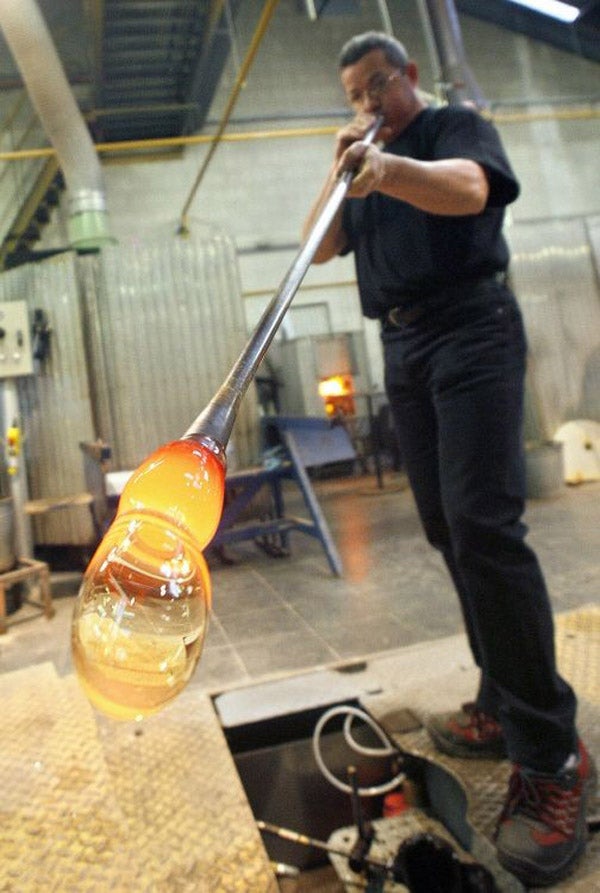A-Z of Courses: Glass-blowing

What is it?
Glass-blowing is the process used to shape glass. It quite literally involves blowing with your mouth through a blowpipe at the end of which is molten glass – a combination of limestone, sand, potash and soda ash that has been heated to more than 1,000C. Today's glass-blowing courses combine traditional skills with contemporary techniques for both beginners and those with some previous experience. Students learn how to use a blowpipe to form a bubble with molten glass, shape glass with a marver and special glass-blowing tweezers, and use the punty, paddles, jacks, and shears to add to the design and shape. These skills are then used to design, produce and decorate all kinds of glass objects from scientific equipment to ornaments, tableware, mirrors and works of art. While the temptation is there to make jokes about people in glass houses, it's a deadly serious subject – the high temperatures mean there's a huge emphasis on health and safety.
Where can I study it?
The International Glass Centre at Brierley Hill, part of Dudley College, is a centre of excellence, building on the town's history of producing lead crystal. Here, one can take one-year courses in glass techniques and technology and a number of Professional Development Awards in Design (Glass) at levels two to five. Richmond Adult Community College, near Twickenham, also offers a number of short courses working in glass. Bournemouth and Poole College offers a BTEC Level 2 short course in 3-D design and a BTEC Level 3 short course diploma in design crafts, after which students can study for a BA or start their careers as designers and makers of glass. You can study it at a higher-education level at the University of Sunderland National Glass Centre, too.
What else do I need?
John Taylor, who for 30 years worked for Brierley Crystal, runs the International Glass Centre at Brierley Hill. He's not looking for anything beyond enthusiasm: "Providing they've got two hands and reasonable intelligence, we would always consider most of the applicants," says Taylor. Indeed, there's no need for specific scientific knowledge or artistic skills, as long as the applicants are reasonably dexterous and have good hand-eye coordination. You also need some artistic awareness and lots of patience – and, of course, while cracking the odd tumbler during washing-up is normal, it helps if you are not too clumsy.
But can I get a job in it?
It's tough to get a glass-blowing job, because there aren't huge numbers of glass workshops. But that doesn't mean your only option is to pack your bags and move to the glass capital of the world, Venice. Indeed, once you're trained up, you're one of a select few and can always set up by yourself for private commissions in the UK. Glass is an exciting medium for artists too and you may find yourself exhibiting your work or demonstrating your skill to members of the public. If you enter an established workshop, you'll probably start as a trainee. Your work would be likely to include ensuring that the glass-blowers have the right tools and keeping the studio tidy.
Little-known fact
Glass has existed since prehistoric times. It was probably first formed when rocks were melted by volcanoes or meteorites. But it was not until about 5,500 years ago that the first glass objects are thought to have been made by humans. These were opaque beads from Mesopotamia.
Join our commenting forum
Join thought-provoking conversations, follow other Independent readers and see their replies
Comments
Bookmark popover
Removed from bookmarks